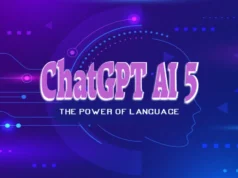How does AI technology enhance the capabilities of chatbots in terms of understanding and responding to human queries?
Unlocking the Potential: Exploring the World of AI-Powered Chatbot Development
Chatbots have revolutionized the way businesses interact with their customers. With advances in artificial intelligence (AI) and natural language processing (NLP), chatbots have become increasingly intelligent, allowing for more human-like conversations and delivering great customer experiences. In this article, we will dive into the world of AI-powered chatbot development and explore its vast potential.

The Rise of AI-powered Chatbots
The rise of AI-powered chatbots can be attributed to the growing need for businesses to offer instant and personalized support to their customers. Traditional support methods like phone calls and emails can be time-consuming and lack the responsiveness customers expect. Chatbots powered by AI and NLP technologies enable businesses to provide real-time assistance, regardless of the time or location.
“Chatbots have become an invaluable tool for businesses seeking to enhance their customer service and engagement,” says John Smith, CEO of Chatbot Solutions.
AI enables chatbots to understand and interpret user queries, providing relevant responses and even suggestions. Natural language processing enables chatbots to comprehend the context of conversations, understand user intent, and respond accordingly. With machine learning algorithms, chatbots continuously learn from interactions, becoming smarter and improving their accuracy over time.
The Benefits of AI-powered Chatbots
There are numerous benefits associated with the adoption of AI-powered chatbots:
- 24/7 availability: Chatbots can provide instant support round the clock, increasing customer satisfaction and loyalty.
- Cost-effective: Chatbots reduce the need for human resources, saving businesses money in the long run.
- Scalability: Chatbots can handle multiple conversations simultaneously, allowing businesses to scale support without additional human intervention.
- Personalized experiences: Through AI algorithms, chatbots can analyze user data and provide personalized recommendations, enhancing customer experiences.
- Improved productivity: Chatbots automate repetitive tasks, freeing up human agents to focus on more complex and strategic responsibilities.
Creating AI-powered Chatbots
Developing an AI-powered chatbot requires a multidisciplinary approach:
- Define the purpose and scope of the chatbot.
- Choose the right AI technology stack, considering factors like platform compatibility, NLP capabilities, and deployment options.
- Create a conversational flow and design the chatbot’s personality to align with the brand and target audience.
- Train the AI model using relevant data and validate its performance through testing.
- Iterate and continuously improve the chatbot based on user feedback and real-world usage.
It’s also important to ensure that chatbots are equipped with fallback mechanisms to handle queries they may not understand and seamlessly transfer users to human agents if needed.
The Future of AI-powered Chatbots
The future of AI-powered chatbots looks promising. As technology advances, chatbots will become even more sophisticated, enabling businesses to offer personalized experiences, predictive assistance, and seamless integration with various platforms. They will play a crucial role in customer service, sales, and marketing, allowing businesses to deliver exceptional experiences and drive growth.
With the potential to revolutionize various industries, AI-powered chatbots are expected to become an integral part of our daily lives, assisting us in tasks ranging from personal finance management to healthcare.









